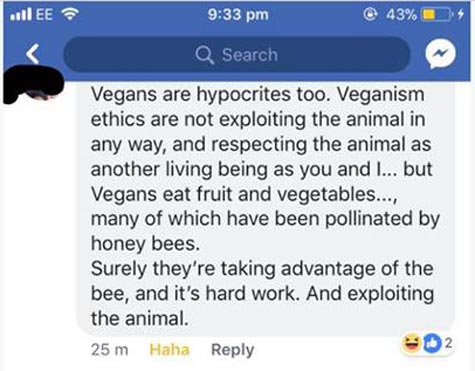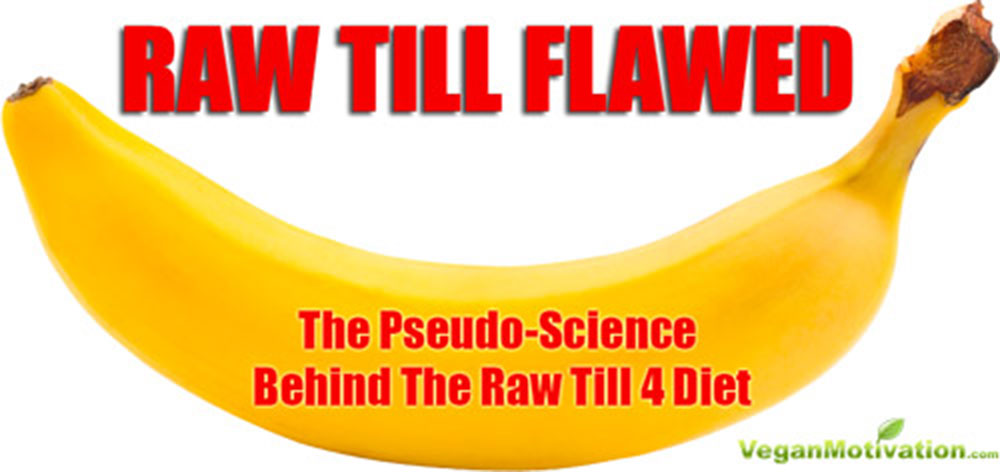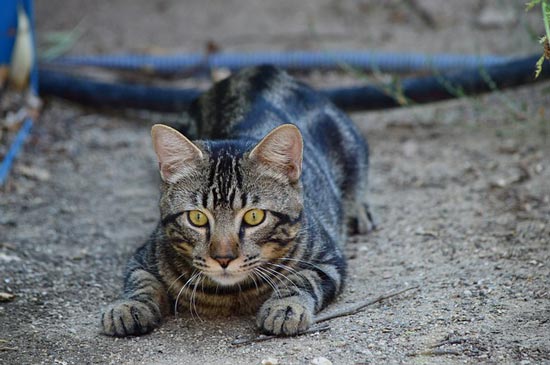I am always torn as to whether I should bother refuting counter arguments such as this, because on the one hand they are always so obviously flawed , yet on the other I think it is necessary to make an attempt to stop such stupidity spreading like a virus.
These counter-arguments seem to come in waves, and are repeated over and over again in various guises. Someone comes up with a new version of the same, and it gets repeated over and over again across various social media channels.
This time around it goes like this:
The proposal of adopting a plant-based diet, or advocating for a plant-based society is inherently flawed because there has never been a society in history that has not eaten meat. So therefore we must eat meat.
I know, strange, right?
But I'm going to explore this anyway.
Unveiling the Stupidity of the “Appeal to Tradition
Essentially, this argument is an appeal to tradition:
Appeal to tradition is a common logical fallacy that occurs when it is assumed that something is better or correct simply because it is older, traditional, or “always has been done”.
Let's just say, for the sake of argument, that we did live our lives by this way of thinking. Let's agree that we should move forward using the appeal to tradition as our moral compass.
Let's run through a few things we have always done that we might choose to keep.
1. Acts of Violence
There has never been a society where random acts of violence haven't occurred such as beatings, rape and nonsensical violence. So should we excuse this behaviour and allow some people to carry on doing it?
Based on historical behaviour, and indeed tradition, violence in many forms is something that has been carried out in every past society, and still exists today.
Sane people want to see violence like this eradicated from society; let's call those people the equivalent of the vegans: those who want to eliminate unnecessary suffering to animals and destruction to the environment.
I hope you can see the parallel and the implication there.
2. The Slave Trade
Slavery has been a part of so many societies through the ages, and in some parts of the world it still exists today.
Believe it or not, there are those who would agree that certain humans are “lesser thans” and should be enslaved. Based on the tradition of slavery, should such people have a voice?
3. Theft
There has never been a society where the theft of people's property hasn't been an issue.
Does that mean that some people have a right to advocate that theft should be excusable in modern society, based on the premise that historically it has always been a part of our way of life?
4. Pedophilia / Child Abuse
There has never been a society where there hasn't been incidents of sexual abuse of children.
Does this mean that paedophiles have the right to advocate for the sexual abuse of children?
5. Evil Animal Torture/Slaughter
All over the world there has been, and continues to be, evil acts of animal slaughter that cause such fear and pain.
Take for example the Yulin Dog Meat Festival; an annual celebration held in Yulin, Guangxi, China. Dogs are skinned and boiled alive, for fun and a desire to eat their meat. Cute little puppies, begging for love and protection, put through the most barbaric treatment.
How about the Tlacotalpan Bull Festival in Mexico. During this annual fiesta in Veracruz, bulls are force-fed alcohol, dragged across a river by boats, and then beaten and stabbed.
Or the Festival of the Ox (Farra do Boi) in Brazil, where the oxen are chased, punched, kicked, and beaten with sticks, knives, whips, stones, and ropes. Their eyes are rubbed with hot pepper and gouged out. Their limbs are broken, and their tails are snapped and hacked off. And some are even doused with gasoline and set on fire. Any oxen who survive are eventually killed, and their flesh is divided among the participants.
And then there's the everyday halal and kosher slaughter.
In Islamic and Jewish societies – now also present in many Western countries – halal and kosher slaughter has been practised for centuries. This evil practice causes the animal immeasurable and unnecessarily suffering. Here is a quick overview of what halal slaughter involves:
Animals are slaughtered by cutting the throat, windpipe and the blood vessels in the neck causing the animal’s death without cutting the spinal cord. The blood has to be drained completely before the head is removed. The spinal cord must not be cut because the nerve fibres to the heart could be damaged during the process causing cardiac arrest, stagnating the blood in the blood vessels.
Would you agree with Muslims and Jews that because there has never been an Islamic or Jewish society that hasn't practised this method of slaughter, that is therefore morally acceptable to do so going forward?
Tradition Doesn't Equate to Healthy
Science has shown us that this particular appeal to tradition is flawed, even without the tradition.
Just because there has never been a society (there are now) or country that has been a hundred percent plant-based, doesn't mean that by default it is healthy to eat meat.
The research is clear: the healthiest societies that have ever lived, for example those with the most centenarians, are those who eat a predominantly plant-based diet.
These societies are where people live statistically longest: Okinawa (Japan); Sardinia (Italy); Nicoya (Costa Rica); Icaria (Greece) and the Seventh-day Adventists in Loma Linda, California. They eat the lowest volume of meat.
These populations live healthier and longer lives because of 9 key factors:
- Moderate, regular physical activity.
- Life purpose.
- Stress reduction.
- Moderate caloric intake.
- Plant-based diet.
- Moderate alcohol intake, especially wine.
- Engagement in spirituality or religion.
- Engagement in family life.
- Engagement in social life.
(Source: Wikipedia)
Yes, their diet may include some fish, or some dairy, or some form of meat, but research shows us that the as meat and dairy consumption is reduced, so is your risk of mortality from diseases such as heart disease, cancer and type 2 diabetes . Of the Okinawans this analysis states:
Vegetables grown on this volcanic soil are rich in vitamin C and polyphenol, which have antioxidant functions. They are a great source of dietary fiber and potassium. People eat 300 g of vegetables a day. The increased consumption of yellow-green Okinawa vegetables that include soybeans, tofu and goya – a bitter gourd improves biological health indices.
Okinawan women also have a very high intake of natural estrogens through their diet, mainly from the soy they consume. Soy contains phytoestrogens, or plant estrogens called flavonoids. The other important major phytoestrogens are lignans, which are derived from flax and other grains.
All plants, especially legumes, onions, and broccoli, contain these natural estrogens, but not nearly in the same quantity as soy and flax. Recent double-blind placebo controlled studies support the ability of soy isoflavones to slow the bone loss that occurs with menopause.
Elderly were found to have impressively young, clean arteries, low cholesterol, and low homocysteine levels when compared to Westerners. They have low blood levels of free radicals.
The elders had significantly lower levels of lipid peroxide-compelling evidence that they suffer less free-radical-induced damage. These factors help reduce their risk for coronary heart disease by up to 80% and keep stroke levels low.
We also know that the Papua Highlanders of New Guinea, central Africans and the Tarahumara Indians of northern Mexico adhere to predominately plant based nutrition and as such are spared heart disease.
The fact is, the less animal protein/fat (meat and dairy) a society consumes correlates with how much “lifestyle” disease they experience and how long they live.
For example: researchers from the National Cancer Institute in Maryland tracked the eating habits of 536,000 men and women between the ages of 50 to 71 for 16 years.
This is the largest study so far to link the consumption of both processed and unprocessed red meat to an increase in death rates from a total of nine different diseases.
The results revealed that people who ate the most red meat were 26 percent more likely to die of nine diseases than those who consume the least: cancer, heart disease, stroke, diabetes, infections, kidney disease, liver disease or lung disease all increased with the amount of meat consumed, and those people with the highest meat intake doubled their chances of dying from chronic liver disease.
This is the largest study done so far to show increased mortality risks from different causes associated with consuming both processed and unprocessed red meat, and it underlines the importance of heme iron, nitrates, and nitrites in assessing the pathways related to health risks associated with red meat intake. (Source: BMJ)
A separate Mayo Clinic study produced similar findings, after which the authors concluded a recommendation of a plant-based diet:
Physicians should encourage patients to limit animal products when possible, and substitute red meat and processed red meat with plant-based foods. (Source: Jaoa)
The further you get away from meat and dairy the healthier you become, so why would you appeal to a tradition that will probably shorten your life?
This doesn't mean that a person's diet can't contain a small amount of animal protein/fat and still avoid disease and live to a ripe old age, but the fact that the more people move towards a plant-based diet the healthier they become, coupled with the fact that environmentally we are at point in our history where we cannot sustain the current level of animal agriculture because it is so inherently destructive to our planet, why would you cling to this notion that we MUST eat meat because historically societies have always done so?
Ask Yourself: What Kind of Society Do You Want?
There are hundreds of example whereby we can appeal to tradition to justify immoral behaviour, but put simply: just because you have always done something, doesn't make it morally acceptable.
Surely, as a species, the idea is to progress towards being healthier, towards being less violent, towards being less destructive.
Isn't that what we all want?
I don't think any of us would disagree that we'd like to develop better methods of living, ones that preserve our health, our planet and the health of society (harmonious communities).
Why would you unnecessarily initiate violence on another sentient being, or pay someone else to do it, just because “we have always done it”?
Evidence shows that the healthiest societies (historically) are those that live on predominantly plant-based diets. It also shows that animal agriculture is causing massive destruction to our planet. It also shows that animal agriculture causes unnecessary suffering to animals.
Moreover, as we have explored, tradition and culture are not necessarily good compasses for navigating towards a morally grounded society.
So considering all this: why would you oppose moving towards a plant-based society on the basis of historical meat consumption?




Leave a Reply